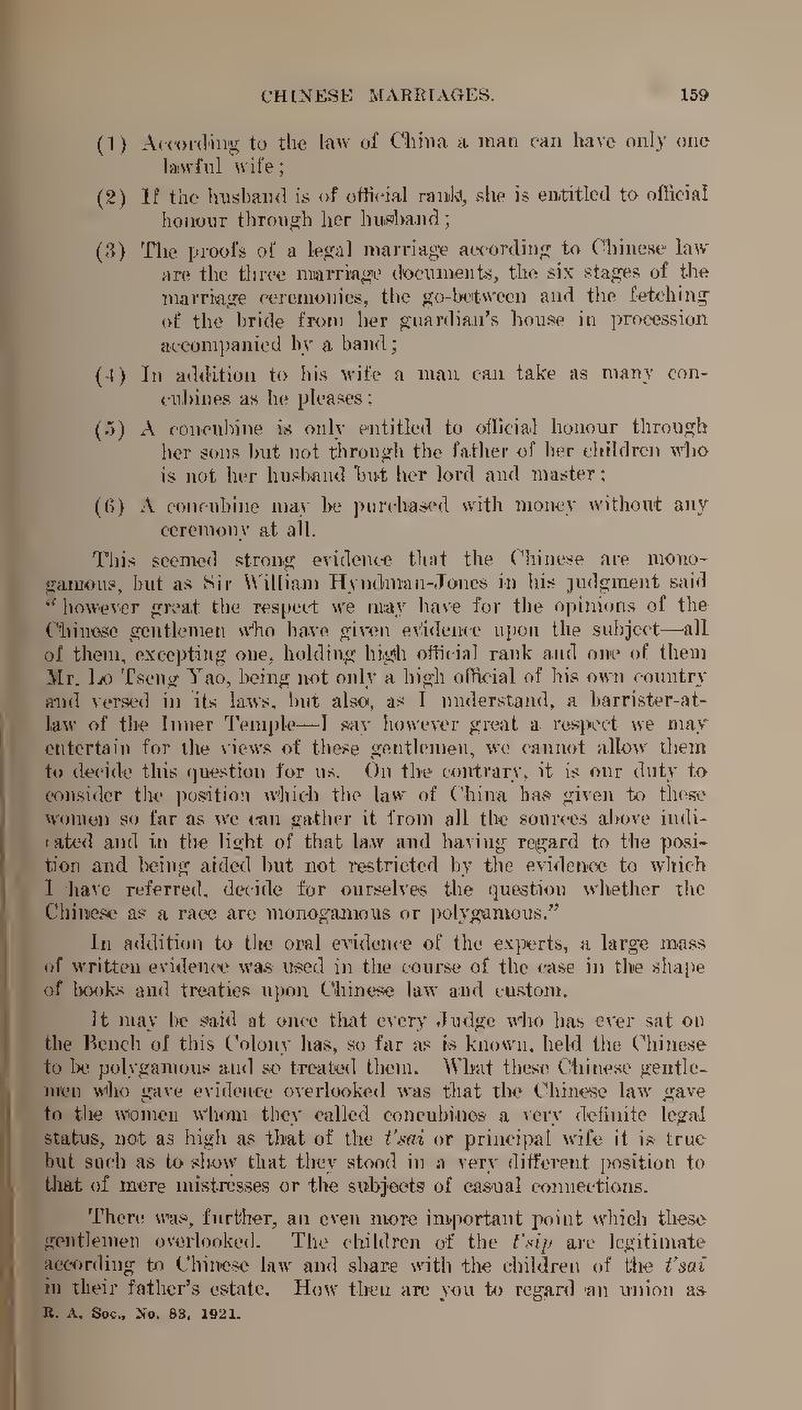(1) According to the law of China a man can have only one lawful wife;
(2) If the husband is of official rank, she is entitled to official honour through her husband;
(3) The proofs of a legal marriage according to Chinese law are the three marriage documents, the six stages of the marriage ceremonies, the go-between and the fetching of the bride from her guardian's house in procession accompanied by a band;
(4) In addition to his wife a man can take as many concubines as he pleases:
(5) A concubine is only entitled to official honour through her sons but not through the father of her children who is not her husband but her lord and master:
(6) A concubine may be purchased with money without any ceremony at all.
This seemed strong evidence that the Chinese are monogamous, but as Sir William Hyndman-Jones in his judgment said "however great the respect we may have for the opinions of the Chinese gentlemen who have given evidence upon the subject—all of them, excepting one, holding high official rank and one of them Mr. Lo Tseng Yao, being not only a high official of his own country and versed in its laws, but also, as I understand, a barrister-at-law of the Inner Temple—I say however great a respect we may entertain for the views of these gentlemen, we cannot allow them to decide this question for us. On the contrary, it is our duty to consider the position which the law of China has given to these women so far as we can gather it from all the sources above indicated and in the light of that law and having regard to the position and being aided but not restricted by the evidence to which I have referred, decide for ourselves the question whether the Chinese as a race are monogamous or polygamous."
In addition to the oral evidence of the experts, a large mass of written evidence was used in the course of the case in the shape of books and treaties upon Chinese law and custom.
It may be said at once that every Judge who has ever sat on the Bench of this Colony has, so far as is known, held the Chinese to be polygamous and so treated them. What these Chinese gentlemen who gave evidence overlooked was that the Chinese law gave to the women whom they called concubines a very definite legal status, not as high as that of the t'sai or principal wife it is true but such as to show that they stood in a very different position to that of mere mistresses or the subjects of casual connections.
There was, further, an even more important point which these gentlemen overlooked. The children of the t'sip are legitimate according to Chinese law and share with the children of the t'sai in their father's estate. How then are you to regard an union as
